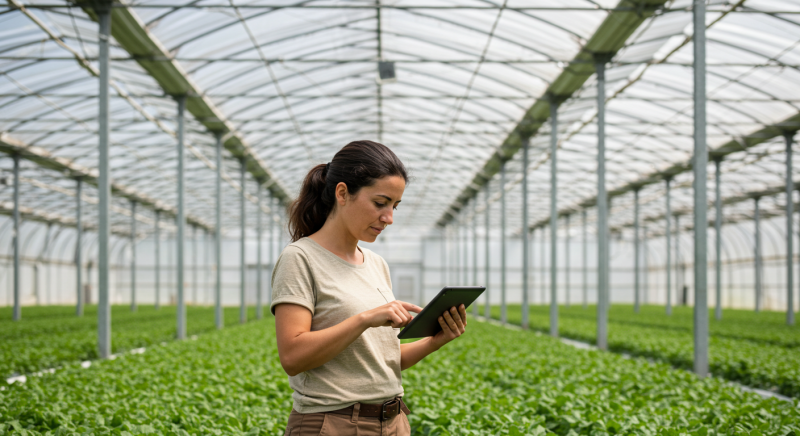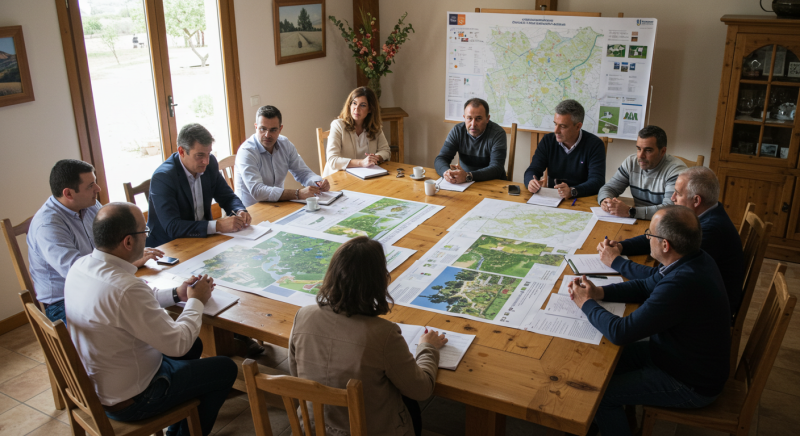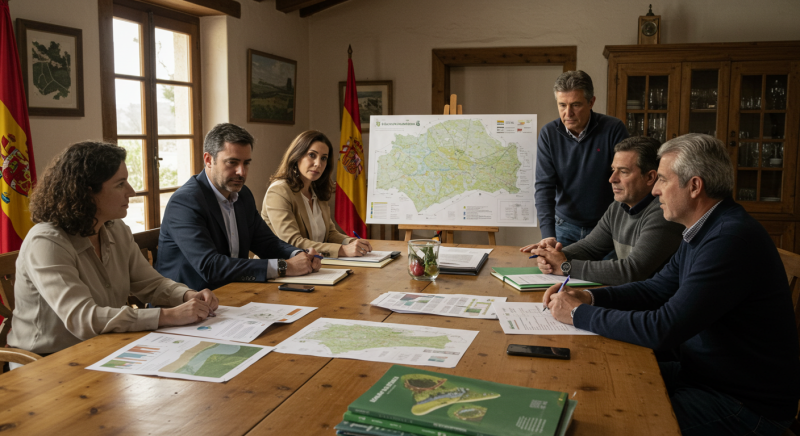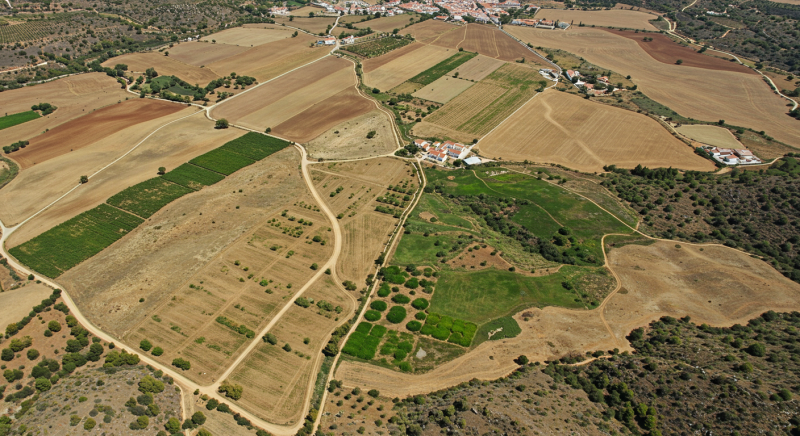Spain’s agricultural sector stands as a cornerstone of the national economy, contributing approximately 2.7% to the GDP and employing over 700,000 people across the country. The pursuit of agricultural development in Spain has intensified in recent years, with numerous grants for agricultural development in Spain becoming available to farmers, cooperatives, and agribusinesses. These funding opportunities aim to modernize farming practices, enhance sustainability, and improve competitiveness in global markets.
Key Takeaways:
- Spain offers diverse grants for agricultural development targeting sustainability, technology adoption, and rural vitality
- EU funds provide substantial support through programs like the CAP and EAFRD
- Regional governments administer additional agricultural development grants in Spain with specific local focuses
- Application processes require detailed business plans and demonstration of environmental commitments
- Combining multiple grants for agricultural development in Spain can maximize funding potential

The Evolving Landscape of Agricultural Funding in Spain
The Spanish agricultural sector faces significant challenges, from climate change and water scarcity to generational renewal and market competition. Fortunately, a robust framework of grants for agricultural development in Spain exists to address these issues, supporting farmers in their transition toward more sustainable and profitable operations.
According to recent data from the Spanish Ministry of Agriculture, Fisheries and Food, over €7.4 billion was allocated to various agricultural support programs in 2024 alone, representing a 12% increase from previous years. These grants for agricultural development in Spain provide crucial lifelines for many farmers navigating economic uncertainties and environmental challenges.
Let’s explore the ten most impactful grant programs currently available:
1. Common Agricultural Policy (CAP) Direct Payments
The European Union’s Common Agricultural Policy remains the backbone of agricultural development in Spain, providing direct financial support to farmers. The 2023-2027 CAP framework introduced significant reforms, with Spain receiving approximately €47.7 billion over this period.
These grants for agricultural development in Spain now come with enhanced environmental conditions, requiring farmers to adopt climate-friendly practices to receive full payment. Spanish farmers can access these funds through the Spanish Agricultural Guarantee Fund (FEGA), which distributes approximately €5 billion annually in direct payments.
A notable success story comes from Valencia, where citrus farmer Miguel Hernández transformed his conventional operation to organic production using CAP support: “The grants for agricultural development in Spain through CAP allowed me to weather the transition period when yields were lower. Now my organic oranges command premium prices in European markets.”
For more information, farmers can visit the FEGA official website.
2. European Agricultural Fund for Rural Development (EAFRD)
The EAFRD represents another major source of grants for agricultural development in Spain, focusing specifically on rural areas. Through Spain’s Rural Development Program, approximately €8.3 billion has been allocated for the 2023-2027 period.
These funds support diverse initiatives, from farm modernization and young farmer establishment to environmental protection and rural tourism development. The program exemplifies how grants for agricultural development in Spain can address multiple challenges simultaneously.
Rural communities in Extremadura have particularly benefited, with local agritourism ventures receiving over €12 million in 2024 to develop farm-stay accommodations and artisanal food production facilities, creating additional income streams for farming families.
3. Next Generation EU Agricultural Recovery Funds
Following the COVID-19 pandemic, the European Union implemented the Next Generation EU recovery package, which included substantial grants for agricultural development in Spain. Spain received approximately €7.8 billion specifically earmarked for agricultural transformation.
These funds focus on digitalization, ecological transition, and resilience-building in the agricultural sector. Projects must demonstrate innovation and sustainability to qualify for these grants for agricultural development in Spain.
A consortium of olive oil producers in Andalusia recently secured €4.2 million through this program to implement precision agriculture technologies, reducing water consumption by 30% while maintaining production levels.
4. Young Farmers Installation Aid
Addressing the critical issue of generational renewal, Spain offers specific grants for agricultural development targeted at young farmers under 40 years old. These grants provide initial setup support of up to €70,000 per young farmer, depending on the project scope and regional regulations.
In 2024, approximately 5,800 young Spaniards benefited from these grants for agricultural development in Spain, injecting fresh perspectives and innovation into the sector. The program requires beneficiaries to develop comprehensive business plans and demonstrate sustainable farming practices.
Carmen Rodríguez, a 32-year-old newcomer to agriculture in Castilla-La Mancha, shares: “Without the young farmer grants for agricultural development in Spain, I could never have purchased the equipment needed to start my saffron cultivation business. Now I employ three people during harvest season.”
5. Agricultural Innovation and Research Grants (CDTI)
The Centre for Industrial Technological Development (CDTI) manages innovation-focused grants for agricultural development in Spain. With an annual budget exceeding €90 million for agricultural projects, these grants support research, development, and technological implementation.
Projects focusing on precision agriculture, biotechnology, and resource efficiency receive priority funding. The grants typically cover between 40% and 70% of eligible project costs, making innovation more accessible to Spanish farmers and agribusinesses.
Recent success stories include a Navarra-based cooperative that developed drought-resistant grape varieties using CDTI grants for agricultural development in Spain, resulting in 25% water savings across 2,000 hectares of vineyards.
For application details, visit the CDTI agricultural innovation page.
6. Ecological Agriculture Conversion Subsidies
As Spain strives to reach 25% organic agricultural land by 2030 (up from 10.8% in 2023), conversion subsidies have become crucial grants for agricultural development in Spain. These subsidies compensate farmers for income losses during the transition period from conventional to organic farming.
Payments vary by crop type and region but typically range from €300 to €900 per hectare annually for up to five years. These grants for agricultural development in Spain have contributed to making Spain the leading European country in organic farming area, with over 2.4 million hectares certified organic.
The Balearic Islands government has been particularly proactive, offering enhanced grants for agricultural development in Spain that cover up to 90% of certification costs alongside per-hectare payments, resulting in 35% of agricultural land achieving organic status.
7. Irrigation Modernization Program
Water scarcity represents one of Spain’s greatest agricultural challenges. The Irrigation Modernization Program provides substantial grants for agricultural development in Spain focused on water efficiency.
With an annual budget of €215 million, this program funds up to 60% of costs for drip irrigation systems, water recycling installations, and smart irrigation technologies. These grants for agricultural development in Spain have proven essential as climate change intensifies drought conditions across the Mediterranean.
The Irrigation Communities of Murcia have leveraged these funds to implement advanced water management systems, reducing consumption by 40% while maintaining productivity in this water-stressed region.
Applications can be submitted through the National Irrigation Plan portal.
8. Rural Woman Entrepreneurship Program
Addressing gender inequality in agriculture, Spain has implemented specific grants for agricultural development targeting women entrepreneurs in rural areas. This program provides financial support of up to €50,000 for agriculture-related businesses established by women.
Beyond financial assistance, these grants for agricultural development in Spain include mentoring, networking opportunities, and technical training. Approximately 1,200 women benefited from this program in 2024, introducing diverse perspectives and business models to rural economies.
In Galicia, a collective of women farmers used these grants for agricultural development in Spain to establish a cooperative producing premium dairy products, generating €1.8 million in annual revenue and creating employment for 17 women in a previously declining rural community.
9. Regional Agricultural Development Programs
Spain’s autonomous communities manage region-specific grants for agricultural development tailored to local agricultural priorities. These programs complement national and European initiatives, often focusing on traditional farming practices and regional specialties.
For instance, Catalonia offers specialized grants for agricultural development in Spain supporting vineyards on steep slopes, preserving both traditional viticulture and preventing soil erosion. The Canary Islands provide enhanced support for tropical fruit cultivation adapted to the archipelago’s unique conditions.
These regional grants for agricultural development in Spain typically have smaller budgets but can provide critical support for niche agricultural activities that might not qualify for broader programs.
10. Agricultural Insurance Subsidies
Risk management represents a crucial aspect of agricultural development. Spain offers substantial grants for agricultural development in the form of insurance premium subsidies, covering up to 65% of policy costs depending on the production type and coverage level.
These grants for agricultural development in Spain enable farmers to protect their investments against increasingly unpredictable weather events, pests, and market fluctuations. In 2024, approximately 380,000 policies received subsidies, protecting crops valued at €15 billion.
Following severe hailstorms in La Rioja in 2023, insured grape producers recovered approximately 80% of their losses through subsidized policies, demonstrating the importance of these grants for agricultural development in Spain for sector resilience.
For more information, visit Agroseguro.
Maximizing Success with Agricultural Grants in Spain
Securing grants for agricultural development in Spain requires careful planning and strategic approach. Agricultural economist Dr. María Fernández from the University of Córdoba advises: “Successful applicants typically combine multiple funding sources to create comprehensive development projects. For example, a young farmer might simultaneously access installation aid, innovation grants, and ecological conversion subsidies.”
When applying for grants for agricultural development in Spain, consider these expert recommendations:
- Develop detailed business plans demonstrating economic viability and environmental benefits
- Align projects with national and EU agricultural priorities, particularly sustainability goals
- Collaborate with agricultural associations or cooperatives to strengthen applications
- Consult with specialized grant consultants familiar with agricultural development in Spain
- Maintain meticulous documentation throughout the application and implementation process
The application processes for grants for agricultural development in Spain have been streamlined in recent years, with many now accessible through digital platforms. However, competition remains fierce, with success rates for some programs below 30%.
The Future of Agricultural Development Funding in Spain
The landscape of grants for agricultural development in Spain continues to evolve, with increasing emphasis on climate adaptation, technological innovation, and generational renewal. Expert projections suggest that funding will increasingly target carbon sequestration, biodiversity enhancement, and circular economy practices.
Spain’s Agricultural Development Institute projects that by 2030, approximately 65% of all grants for agricultural development in Spain will incorporate explicit climate action requirements, compared to 40% today. This shift aligns with broader European Green Deal objectives and Spain’s own ecological transition goals.
For Spanish farmers and agricultural enterprises, staying informed about emerging grants for agricultural development in Spain will be essential for maintaining competitiveness while transitioning toward more sustainable practices.
Conclusion
The extensive array of grants for agricultural development in Spain reflects the nation’s commitment to maintaining a vibrant, sustainable agricultural sector. From European Union programs to national initiatives and regional specialties, these funding opportunities provide crucial support for Spain’s farmers facing economic and environmental challenges.
By strategically leveraging these grants for agricultural development in Spain, agricultural enterprises can modernize operations, adopt sustainable practices, and improve market positioning. The transformation of Spanish agriculture ultimately depends on effectively utilizing these financial resources to balance productivity, environmental stewardship, and rural vitality.
For farmers, cooperatives, and agribusinesses seeking to thrive in an evolving landscape, these grants for agricultural development in Spain represent not merely financial assistance but pathways toward a more resilient and sustainable future. The coming years will likely see further refinement of these programs to address emerging challenges while continuing to support Spain’s agricultural heritage and innovation.

Frequently Asked Questions
What are the main types of grants available for agricultural development in Spain?
Spain offers several categories of grants for agricultural development, including European Union funding (CAP direct payments, EAFRD), national programs (irrigation modernization, innovation grants), and regional initiatives tailored to local agricultural priorities. These grants target various aspects, from farm modernization and sustainability to generational renewal and risk management.
Who is eligible to apply for agricultural development grants in Spain?
Eligibility for grants for agricultural development in Spain varies by program but typically includes active farmers, agricultural cooperatives, rural SMEs, and research institutions. Some programs specifically target young farmers (under 40), women entrepreneurs, or ecological producers. Most grants require applicants to be registered in the Spanish agricultural registry and comply with environmental cross-compliance requirements.
How can I improve my chances of securing agricultural grants in Spain?
To increase success with grants for agricultural development in Spain, develop comprehensive business plans demonstrating economic viability and environmental benefits, align projects with EU and national priorities, collaborate with agricultural associations, maintain detailed documentation, and consider consulting with specialists familiar with agricultural funding programs. Applications demonstrating innovation, sustainability, and job creation typically receive priority.
Are there grants specifically for organic farming in Spain?
Yes, Spain offers dedicated grants for agricultural development focused on organic farming, primarily through ecological conversion subsidies. These programs typically provide per-hectare payments during the transition period (2-3 years) from conventional to organic production and may cover certification costs. Spain’s goal of reaching 25% organic agricultural land by 2030 ensures continued support for this sector.
Can foreign investors access agricultural development grants in Spain?
Foreign investors can access many grants for agricultural development in Spain provided they establish legal entities in Spain and comply with all regulatory requirements. EU citizens have similar access to Spanish nationals, while non-EU investors may face additional requirements. Regional governments often provide special assistance to international agricultural investors bringing innovation or significant capital investment.
READ MORE

